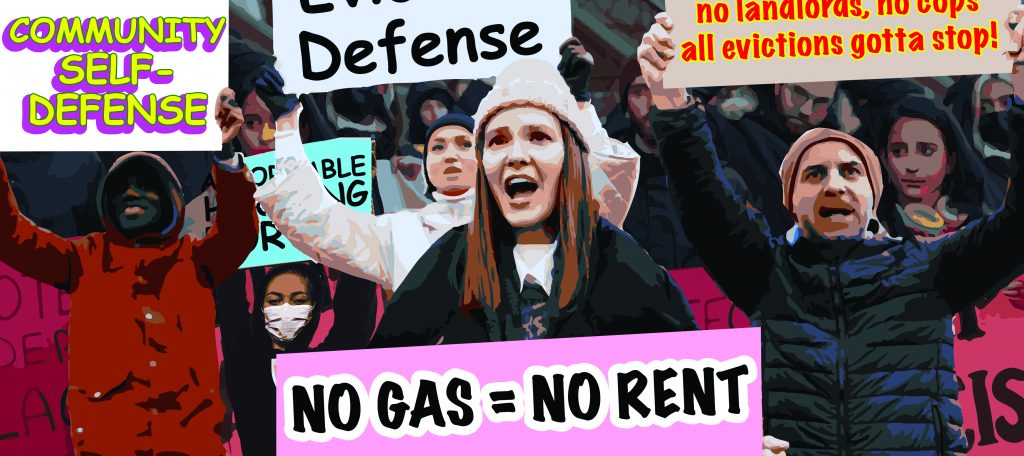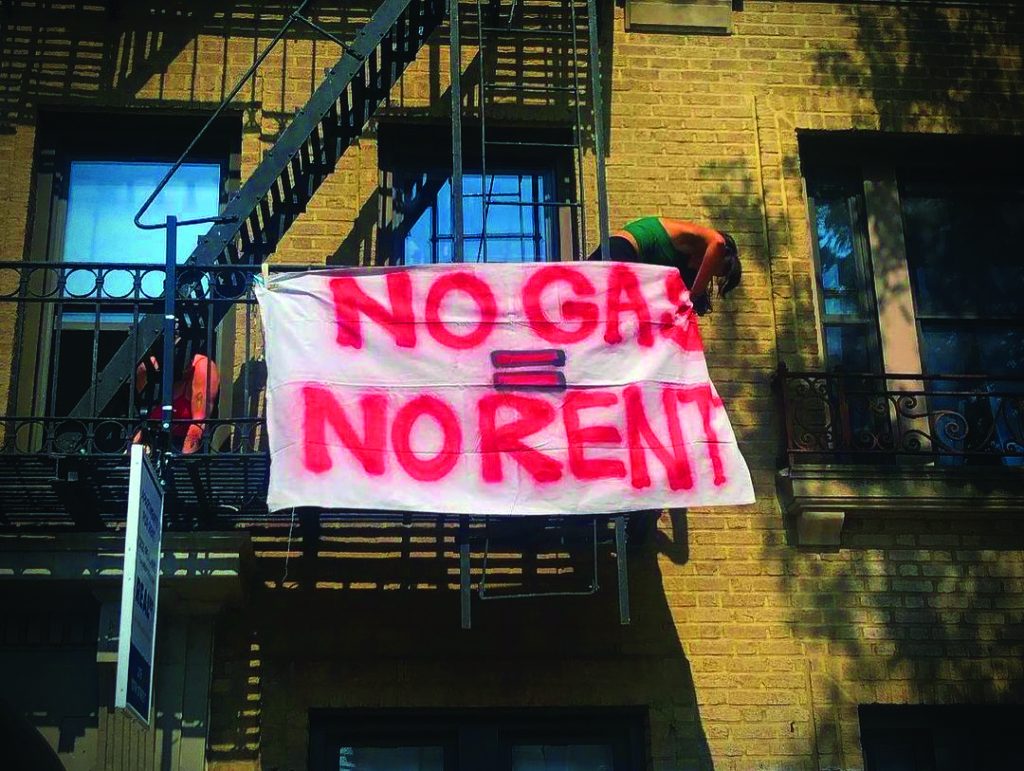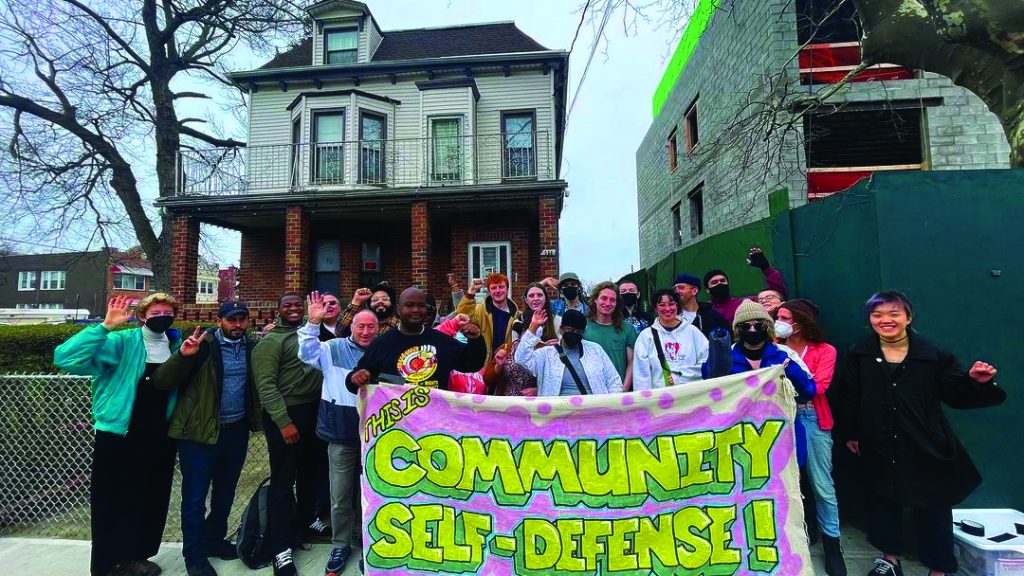Each month it becomes more apparent the cost of living here in Brooklyn is not getting any lower. Only higher! After 9 consecutive months of rent increases, this past June 2022 experienced the highest year-over-year median rent growth. Bringing the median rent in Brooklyn to $3,500.

Each month I share in the struggle of paying rent I feel I can barely afford while consulting on which meal we should skip to save money. Breakfast, lunch, or dinner? Meanwhile, I walk down the avenues here in Park Slope and notice yet another of my favorite local businesses closing. I ask why, and the owner talks about lower profits and higher rent. Later I receive a text that a friend has to move because their “covid rent deal” is over, and their rent went up over 50%. Along the way home, I spot a flier for “Brooklyn Eviction Defense.”
We all know these situations too well. It’s a struggle, and often one we feel powerless against. However, Brooklyn Eviction Defense is working to bring the power back to us!
Brooklyn Eviction Defense (BED) works as a grassroots, mutual-aid organization providing resources, education, protest, and training for tenants. They understand the need for long-term political and legal solutions, while also providing service for the immediate needs of tenants and members of our community. The group has weekly meetings, hosts events, has zines and online reading resources, community fliers, and organizes community activists events and protests— all with the goal to combat landlord harassment, disrepair, rising rent, and threats of eviction. Their network understands and lives the experience of us individuals in Brooklyn, those who have called these neighborhoods our home for generations, and those beginning a new chapter of their life here.
While there is always change, it is essential we do not feel powerless against these forces. Brooklyn Eviction Defense is here to empower our neighborhood community so we may all live safely, justly, and happily.

Below is my interview with some members of BED.
Who makes up the Brooklyn Eviction Defense?
BED is composed of organized worker-tenants either unaffiliated or affiliated with a formal tenant association within the BED union. We do not have staff. We are a member-led organization. “Volunteer” makes what we do sound like charity. What we do is collectively and consciously build power with and for tenants (including ourselves) in order to combat the dispossessory conditions baked into the landlord-tenant relationship. An important part is also leadership development— the process of unearthing the true potential of every tenant to their own protagonist in the struggle for a right to housing.
What are some of the major programs BED runs?
In recent months our work has focused on building tenant associations to fight disrepair, rent hikes (legal and illegal), and harassment by landlords. Tenants will reach out through our hotline or email to report issues in their building; then we get to work with them, sending organizers to help doorknock, flier, attend meetings, and organize a TA to fight back against those issues. Importantly, we do not view tenants as “people to help.” We are tenants organizing alongside
tenants towards the common goal of ending tenancy— that is, of building a world where we control how and where we live. We have been very successful in the past 9 months at building dozens of TAs across Brooklyn and hope to continue. As tenants, we are strongest when we realize our collective interests and organize alongside each other!
Whom are you fighting for? On an individual level? On a collective level? Your strategy includes “a collective fight for tenant’s rights and tenant protection.” What does that look like in an emergency situation, for example, if an individual is facing eviction?
We are fighting for the precarious and unstable; those who do not control the means of production, specifically those who are systematically denied control over their housing and communities. In an emergency situation that means we recognize that eviction is never an atomized or individual event. We fight to defend our neighbors not out of a sense of goodwill but out of the recognition that the forces behind eviction are the same forces exerting control/power over each of us in our daily lives. Eviction defense then is a defense against the violence of capitalism.
That also means we recognize that the law, being a tool of capitalism, won’t save us. The legal system treats evictions as isolated events, but we know that evictions are not an aberration or extraordinary event, but the rule. That means we aim to not just mobilize in “emergency situations” (quotes because evictions don’t represent a state of emergency, the intended outcome of capitalist logic), we aim to organize tenants to take back control over their homes/communities in a long-term way. Done through tenant associations, rent strikes, and collective actions that mobilize entire buildings and blocks. We are not here to play whack-a-mole with evictions, we are here to build power and transform power relations.
Currently, Brooklyn is facing rezoning; major rezoning projects are expanding from downtown Brooklyn, including Gowanus, Park Slope 5th and 4th Ave, even talks of condos on Governor’s Island— Do these projects pose a threat to the work you do? How? And what are some of the harmful effects?
Rezoning, displacement, and gentrification are inseparably linked under the tyranny of real estate. As long as housing exists for profit rather than its use (the actual lived home, the site our social lives are (re)produced, raise our kids) then it will always be mere commodities for developers, financiers, and landlords to profit from. There’s no such thing as affordable housing and new development will always impact, and disproportionately displace, dispossess, and genocide the culture of black and brown communities. We must demystify the market-based policy solutions (a strategy to build more without considering the inevitable and historic consequences) in favor of our work to sharpen analysis of the terrain and antagonisms lurking within it.
These projects pose a threat to where and how we live. Our mission is to empower greater sovereignty of those things. Is it a threat? It is more like our class enemy.
Our readership is mainly in Park Slope; many residents here own homes, rather than renting— some of them landlords themselves. Are they still at a disadvantage when it comes to these rezoning projects? What advantages and disadvantages may they need to be aware of?
We do not support landlords— nor the false dichotomy of big vs small landlords. They subsist on the life force and stolen value that tenants produce. Rezoning affects homeowners in many ways: sometimes it increases their property’s value i.e. their equity, sometimes it blocks the view
of a toxic river, or, like many racists would say, “affordable housing” invites “undesirables” into their backyards and they oppose them. There are many camps that oppose development without a clear political framework.
We exist to help tenants actualize the power they already have and build movements from that collective power. Also to protect the cultural identity and demographic of a community, including homeowners who are not landlords and are often targeted by refinancing deed theft schemes. We are not a safety net for small landlords. There’s enough of that already.
What effects has gentrification created here in Brooklyn? How is it impacting your organization’s work?
Gentrification is the process of developers, investors, and landlords identifying neighborhoods where they see a “rent gap”— that is, a gap between how much tenants are paying in rent and how much they could be paying— and then evicting long-time, disproportionately black and brown tenants, lobbying for favorable rezonings and subsidies, and effectively remaking the neighborhood into a new, whiter, more profitable(!) set of buildings. This is, by design, a process that dispossessed working-class tenants, which we all are, wholeheartedly, committed to fighting.
We believe the best defense against the forces of gentrification; against the oppressive and genocidal tactics of landlordism; against the financialization of people’s very lives, is, undoubtedly, an organized community— from the building to borough level. Strong, militant tenant associations can fight against dispossession, and when tenant associations across neighborhoods band together, they can fight gentrification. The key is this: landlords, developers, investors, and their political friends are highly organized toward the pursuit of their class interests (reaping immense profit from tenants). The only way we beat them is to out-organize as a class— which we intend to do.
How can individuals support Brooklyn Eviction Defense?
Join our growing union, organize with your neighbors, and create a democratic culture of decision-making and leadership in your buildings! Share our stories about our wins and our struggles, come to our general assemblies, and share our literature and know-your-right pamphlets. Connect to a wider (international) struggle against the bulwark of displacement which is capitalism. We are a member-led organization, with no staffers, no 501.c3 status, no bank accounts, no grant funding. Our movement is powered by the people— so that means support means we need you. Supporting us is just like supporting yourself.

Learn more at brooklynevictiondefense.org
